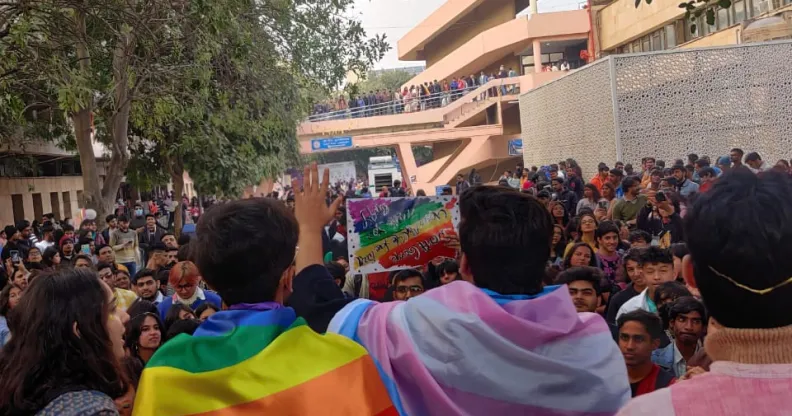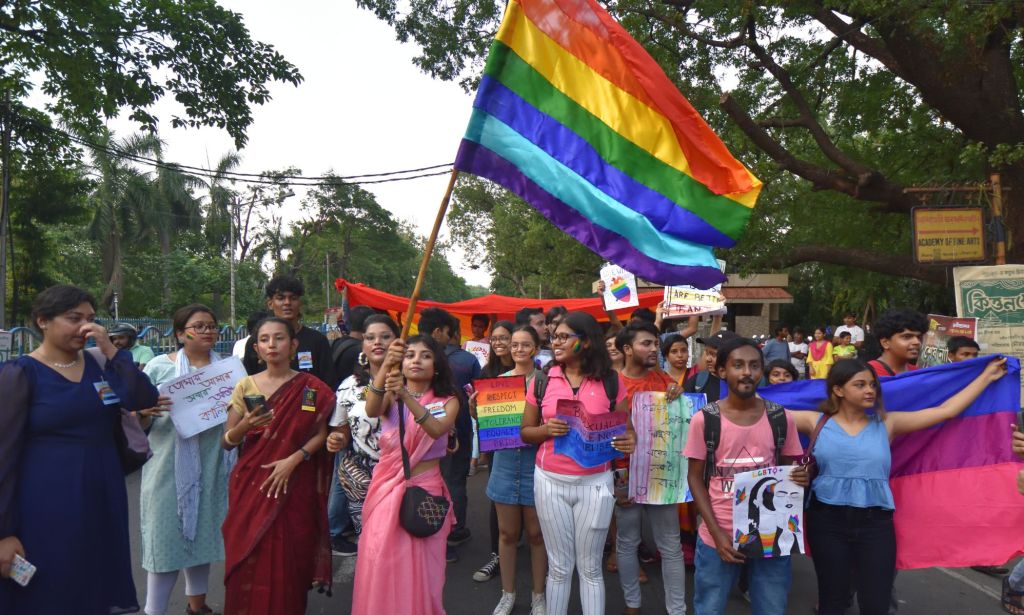Trans student wins legal case against Indian university after being denied admission

A trans student has successfully challenged the National Law School of India University’s decision not to admit them. (Getty)
A trans student in India has won their legal case against a university after being denied admission, citing India’s anti-discrimination reservation system.
The state of Karnataka’s High Court has directed the National Law School of India University (NLSIU) to grant admission to a transgender student, after the student filed a petition to challenge the university’s decision not to admit them.
Mugil Anbu Vasantha had applied to the all-India entrance exam conducted by the NLSIU under the general category and clearly mentioned they were transgender, according to the petition.
While the student got high grades in the exam, including being in the 96th percentile in Part A, they received a message from NLSIU telling them they “not offered admission” as they did not meet all the eligibility criteria.
The reservation system in India
India has a reservation system, which sets aside access to a certain number of seats in government jobs, educational institutions and even legislatures, among other areas, to minority groups who would otherwise find it difficult to access these opportunities.
Reservation is backed by the Indian Constitution. In 2014, the Supreme Court ruled that people from the trans community have a right to reservation as well, as they are a minority in India, and directed the central and state governments to take steps in order to implement the reservation.
India also offers other legal protections for trans people, including the Transgender Persons (Protection of Rights) Act 2019, the Transgender Persons (Protection of Rights) Rules 2020, and the Karnataka State Policy on Transgenders 2017, which have been established to prohibit forms of discrimination against trans people – including in the provision of educational institutes and services.

The NLSIU’s stance on transgender reservation
The National Law School of India University’s decision to deny admission to the trans student was based on the absence of a reservation quota for trans people in the institute.
The university asserted that its decision was aligned with the practices in other similar national educational institutes.
The groups that NLSIU had implemented a reservation for in the three-year LLB programme included: 15 per cent of seats for Scheduled Castes, 7.5 per cent for Scheduled Tribes, 27 per cent for OBCs (Other Backward Classes) and 10 per cent for EWS (Economically Weaker Section).
The university also said that this reservation scheme had been made public, and the student in question was fully aware of this when they took the exam as part of the general category.
However, the state of Karnataka’s High Court noted that the lack of reservation for transgender people at the time of the entrance test violated their fundamental rights guaranteed under the Constitution – to not be discriminated against based on their gender.
The court ruled that this amounted to “denying them education on par with the other protected groups” and that the student must be “able to fully enjoy their rights, including the right to education”.
“The respondents are constitutionally obligated to take positive steps to realise the rights of petitioner and other transgenders and the respondents have failed in their obligation.”
How did this story make you feel?

